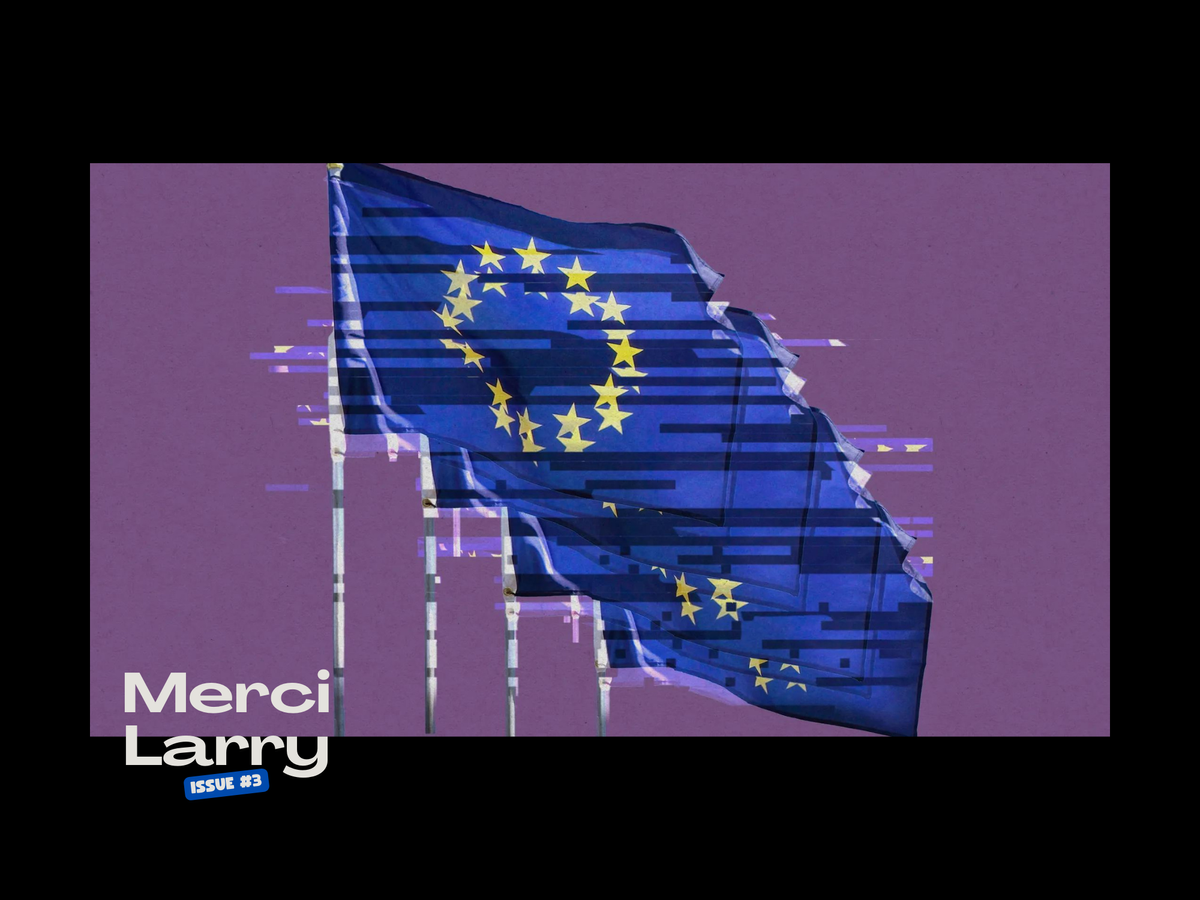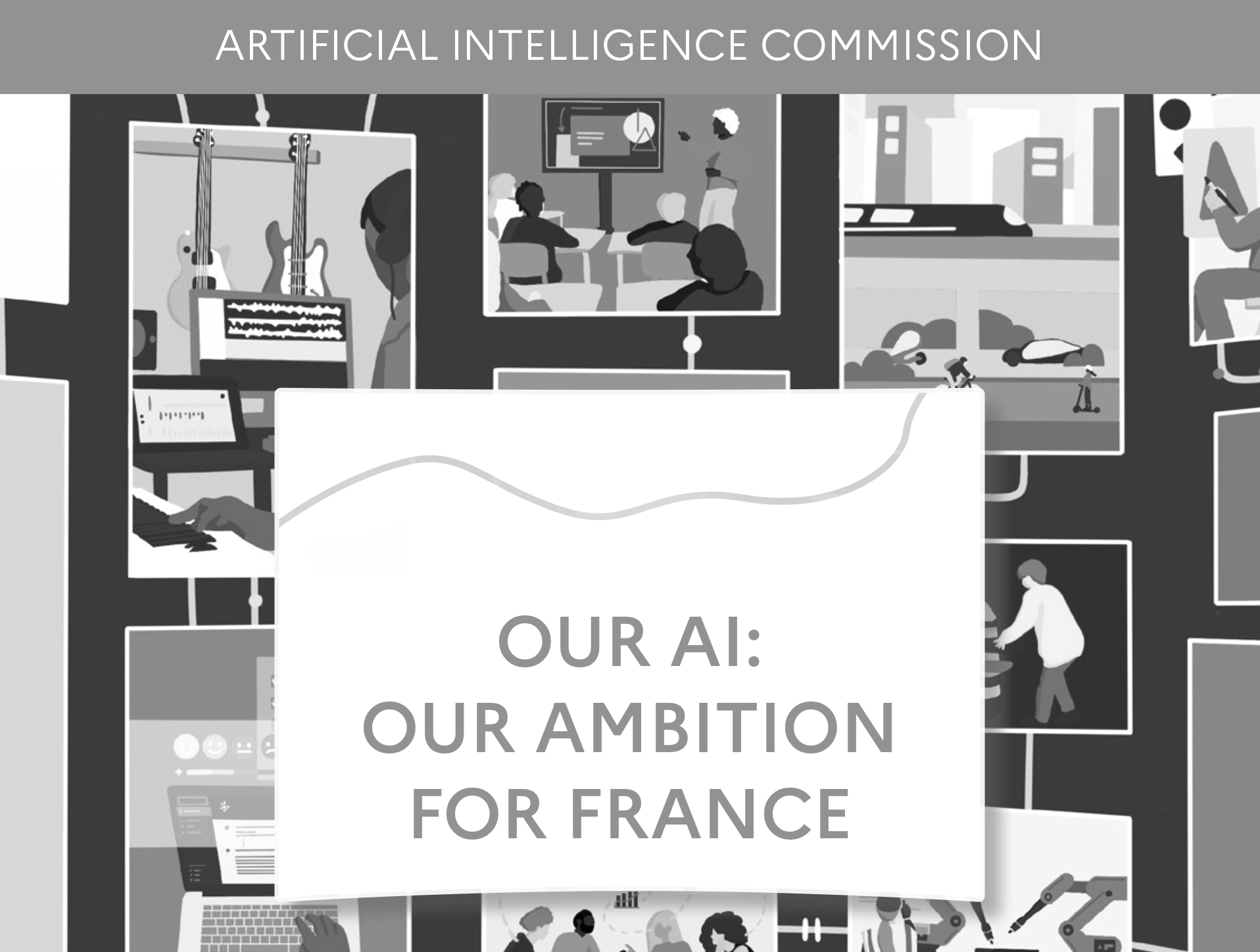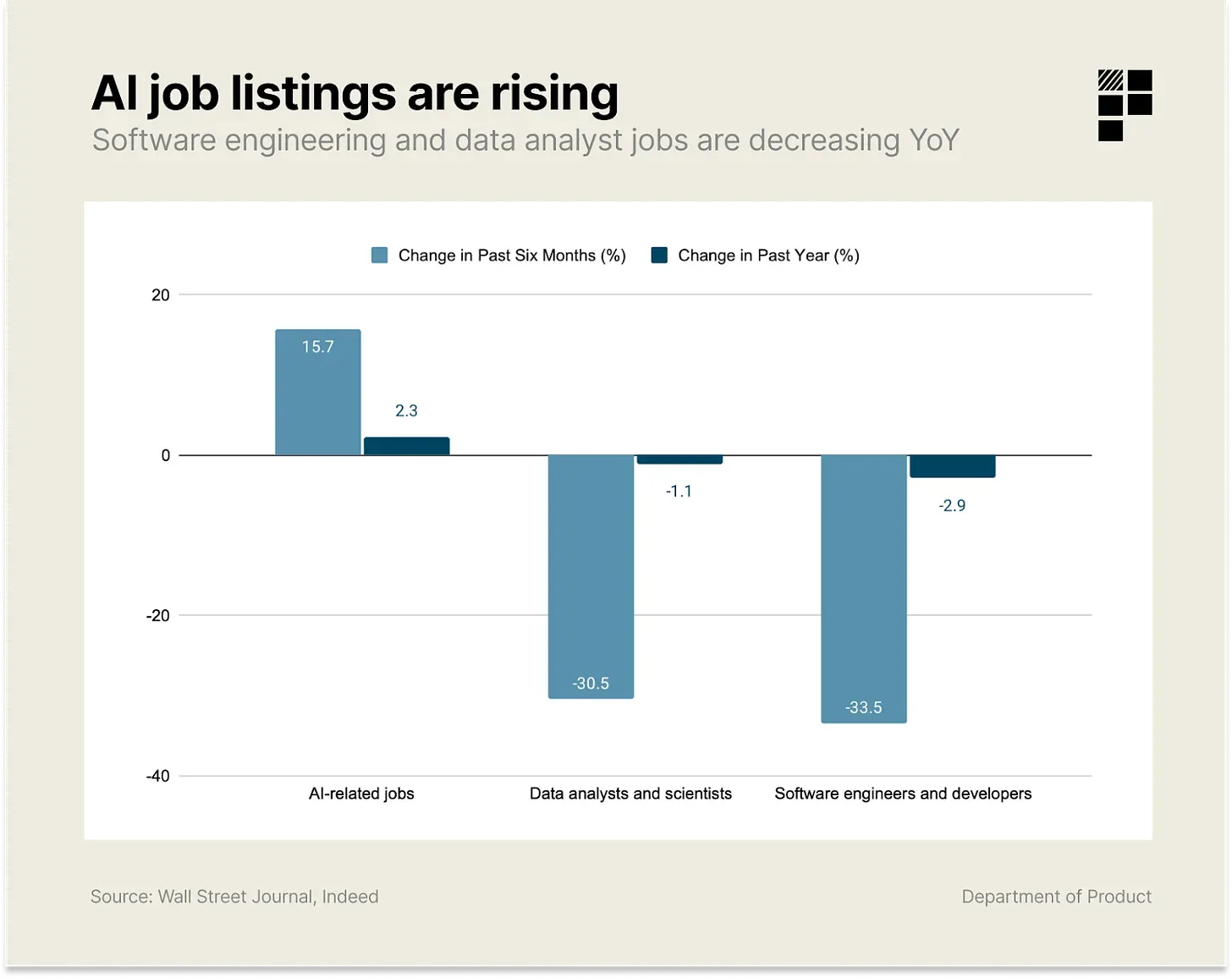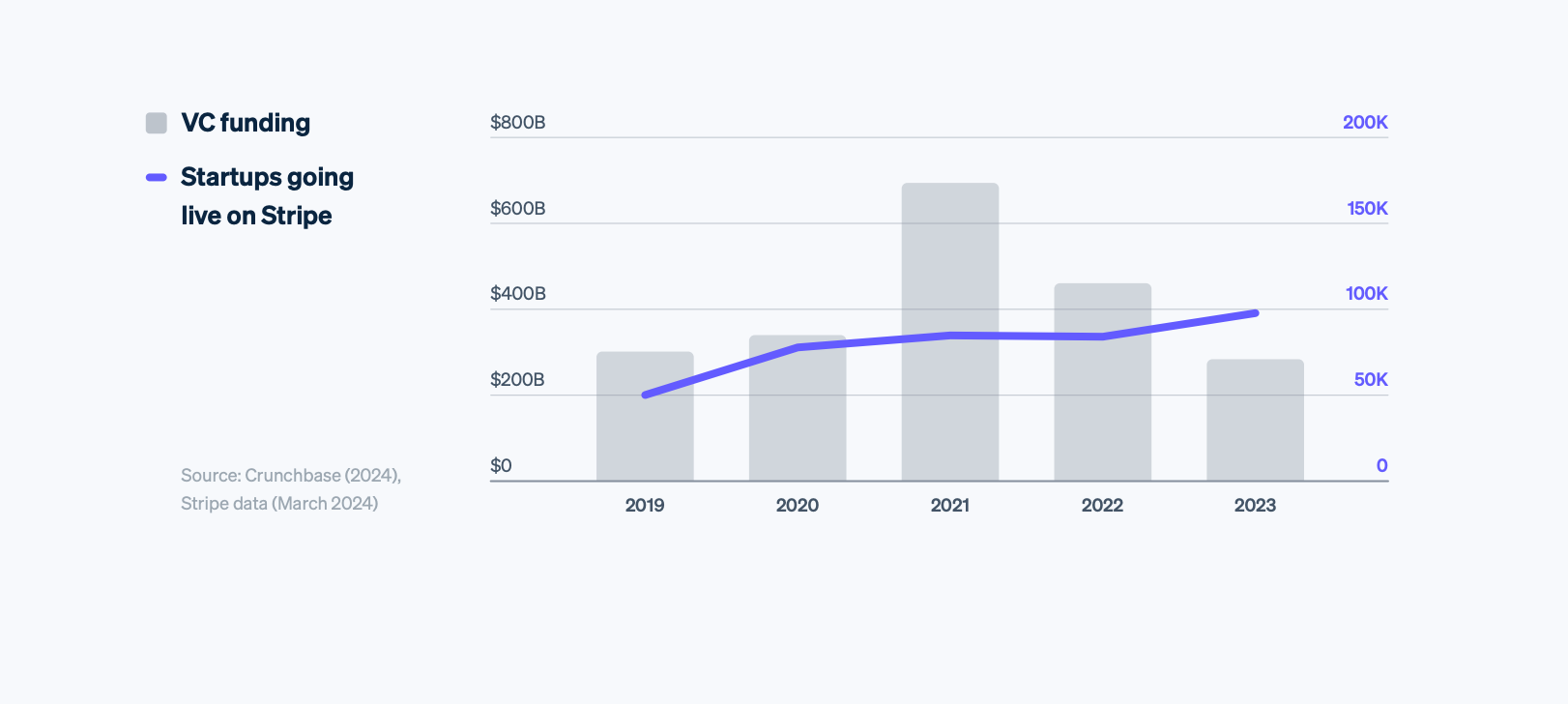The EU has gone further on regulating AI
Brussels has been busy lately with the EU taking the lead with its Artificial Intelligence Act.

Hello!
If you're new here, I'm Alice Roussel, Growth Marketing Manager at Pictarine 🇺🇸 and proud editor of Merci Larry.
Here's my curation on the Trends and Concepts shaping Startup Growth. Each month, I also share my learnings with the will to be 100% transparent with the results.

The European Parliament greenlights a groundbreaking Act to oversight Artificial Intelligence (AI) risks.
Previous attempts around AI regulation have been cautious but lacked the clarity needed to make a significant impact (eg. US and China). The EU AI Act focus on two crucial aspects. Firstly, it aims to strictly control AI usage in sensitive fields such as healthcare for instance. Secondly, it focus on generative AI by tackling the ethical and intellectual property concerns arising from massive data scraping of sources like online media, music, literature, etc. It's this latter aspect that has faced intense lobbying efforts and kept Brussels busy lately.
Key Takeaways. Unsurprisingly and probably in the spirit of regulations set up to protect users' personal data, the EU is taking the lead and will pose significant challenges for companies that have to comply with its AI Act.
Can we imagine ChatGPT being inaccessible from EU countries until OpenAI complies, as it has been the case for Threads (Meta) regarding personal data? I had the curiosity to look at Mistral AI open positions and spotted that they (already!) look for a Legal Counsel to focus on the AI Act compliance including data privacy, intellectual property rights, liability and ethical considerations. Same for OpenAI with even more open positions such as a EU Member States Policy seeking to advance policies and partnerships that align with OpenAI’s mission...

French AI Commission: Pioneering Paths or Potential Pitfalls?
As the EU granted approval for the AI Act, the French AI Commission seized the moment to present its significant report, which featured 25 recommendations aimed at positioning France as a leader in the AI revolution. Among its distinguished members are Yann Le Cun (Meta) and Arthur Mensch (Mistral AI). The report's focal points include the ambition to establish France as a global leader in computing power and to revolutionize its approach to personal data regulation.
Key Takeaways. The Commission' experts propose bold initiatives, such as abolishing certain prior authorization procedures to access to health data and reduce response times. The report also advocates for the implementation of robust technical infrastructure to facilitate AI model training using French and European cultural data all while upholding intellectual property rights.

The University of Maryland's initiative, UMD-LinkUp AI Maps, is instrumental in monitoring the growing landscape of AI jobs. Recent data indicates a notable uptick of 2.3% YTD compared to 2023 in the US. Interestingly, filling AI jobs proves to be more challenging than those in the traditional IT sector that do not necessitate AI skills. This trend underscores the increasing demand for AI expertise and highlights the evolving dynamics of the job market.

Startup formation continues despite shrinking VC dollars.
While headlines often focus on prominent metrics like declining venture dollars, Stripe's overall assessment suggests a dynamic and thriving startup ecosystem, more vibrant than ever before.
Stripe has shared its open letter to the community, highlighting an intriguing trend amidst the backdrop of declining VC funding in 2023, which reached its lowest levels since 2018. Despite this, Stripe has witnessed a surge in startup formation, particularly notable in regions beyond the US, with significant increases observed in the Netherlands, Sweden, and Canada.
Analyzing data from startups founded in 2022 reveals compelling insights. These startups are 60% more likely to begin generating revenue within their first year and 57% more likely to surpass $1 million in processing volume within the same timeframe compared to those founded in 2019.
Key takeaways. A significant indicator of Stripe's influence is reflected in the incorporation trends seen with Stripe Atlas. Presently, one in six new Delaware corporations opts for Stripe Atlas, and the 50,000+ companies launched with Atlas are projected to collectively generate $5 billion in revenue annually.
🎙 Become 100 people’s favorite podcast. Lenny Rachitsky wrapped up his tech stack, workflows and lessons from two years of podcasting. He recently celebrated 10 millions downloads so it's worth a read. Read the free edition.
👩🏻💻 How to build a professional network. Andrew Chen reflects on his own experience to build a professional network. I particularly like the way he highlights the duality between conferences and writing in terms of personal branding awareness. Build a network efficiently.
📢 Can I have your attention, please? An essay exploring the concept of Associative Attention and its pivotal role in distinguishing a brand, influencing consumer perception during purchasing decisions, and ultimately driving sales. Brand consistency: an under-appreciated art.
Question, feedback, suggestion 👉 drop me a line on LinkedIn.
Until next time, ciao!
Alice